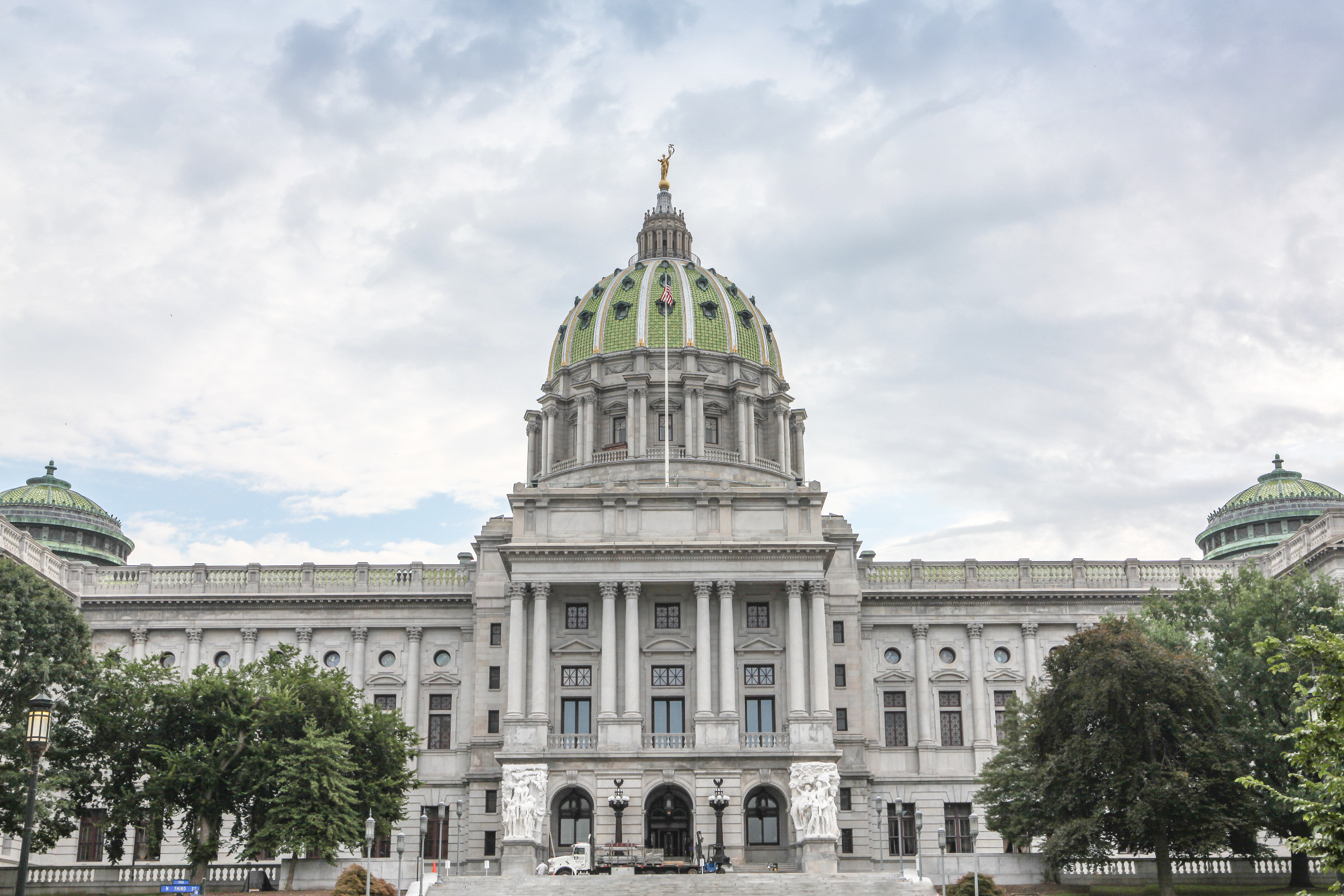A plan by former Pennsylvania Governor Tom Wolf (D) to circumvent the legislative process and force the state to join the Regional Greenhouse Gas Initiative (RGGI) was thwarted Nov. 1, when Pennsylvania’s Commonwealth Court ruled the move violated the state’s constitution.
The court ruled that Wolf’s unilateral move from 2019, which would have Pennsylvania abide by RGGI’s emissions-trading scheme, constituted the imposition of a tax and thus required legislative approval. Now, the current administration of Gov. Josh Shapiro (D) has 30 days to appeal the decision to the state’s Supreme Court.
RGGI is a consortium comprising the states of Connecticut, Delaware, Maine, Maryland, Massachusetts, New Hampshire, New Jersey, New York, Pennsylvania, Rhode Island, Vermont, and Virginia that caps and reduces CO2 emissions from power plants through periodic auctions of emission credits. Virginia Governor Glenn Youngkin (R) is spearheading efforts to remove his state from the consortium, saying that membership in RGGI places an inordinate burden on low-income electric-utility ratepayers.
The majority on the five-judge panel that heard the Pennsylvania case sided with Republican Senators who argued the Department of Environmental Protection (DEP) did not have the constitutional authority to collect revenues from RGGI auctions, and that only the legislature can levy taxes. Judge Michael Wojcik spoke for the panel’s majority in addressing the sensitive constitutional issue of taxation:
“Where, as here, the moneys generated and received by the Commonwealth’s participation in the auction are ‘grossly disproportionate’ to the costs of overseeing participation in the program or DEP’s and EQB’s [Environmental Quality Board] annual regulatory needs, and relate to activities beyond their regulatory authority, Pennsylvania’s participation in RGGI are invalid and unenforceable,” he wrote. “Stated simply, to pass constitutional muster, the Commonwealth’s participation in RGGI may only be achieved through legislation duly enacted by the Pennsylvania General Assembly…”
“We are gratified by the court’s decision and are pleased to have been part of the widespread opposition to RGGI,” said Gregory Wrightstone, executive director of the Arlington, Va.-based CO2 Coalition. “Our analysis found RGGI to be unscientific, unnecessary, economically damaging, and of no environmental benefit.”
False Premise
“RGGI, like all so-called green initiatives, is based on the false premise that emissions of carbon dioxide from human activities are overheating the planet,” Wrightstone explained. “CO2 is in fact an essential plant food, and modern increases in atmospheric levels of the gas have contributed to record crop harvests and an overall greening of Earth. The decision to kill RGGI is a vote for benefitting humanity and a prospering economy.”
Judge Wojcik’s clear statement that states participating in RGGI are imposing a carbon tax on their citizens has both constitutional and economic consequences. As Wrightstone explains:
”RGGI would have imposed a tax on emissions of carbon dioxide from power plants that burn coal and natural gas to generate electricity, adding hundreds of thousands of jobs in the state’s energy sector. The 2019 proposal by Gov. Wolf is believed to have accelerated the July [2023] closing of the state’s coal-fired power plant at Homer City and to have discouraged the development of new fossil-fuel generation in the state.”
Gov. Shapiro’s administration is widely expected to appeal the RGGI ruling to the state’s Supreme Court.
